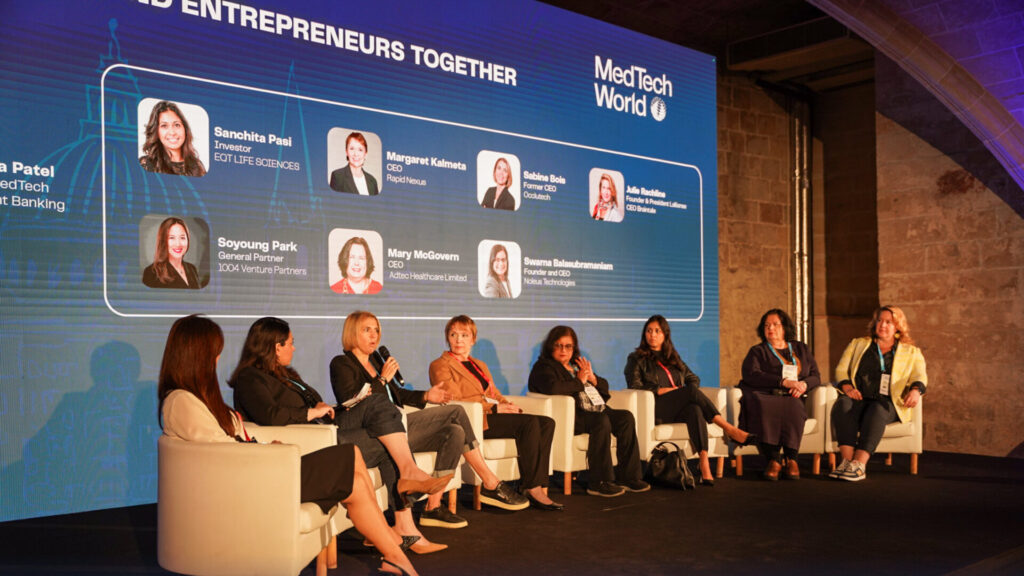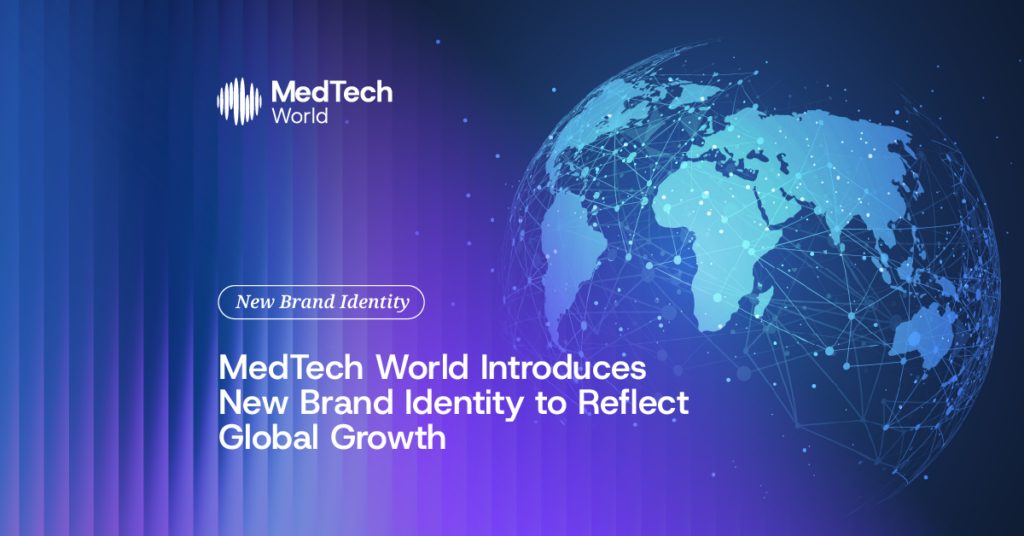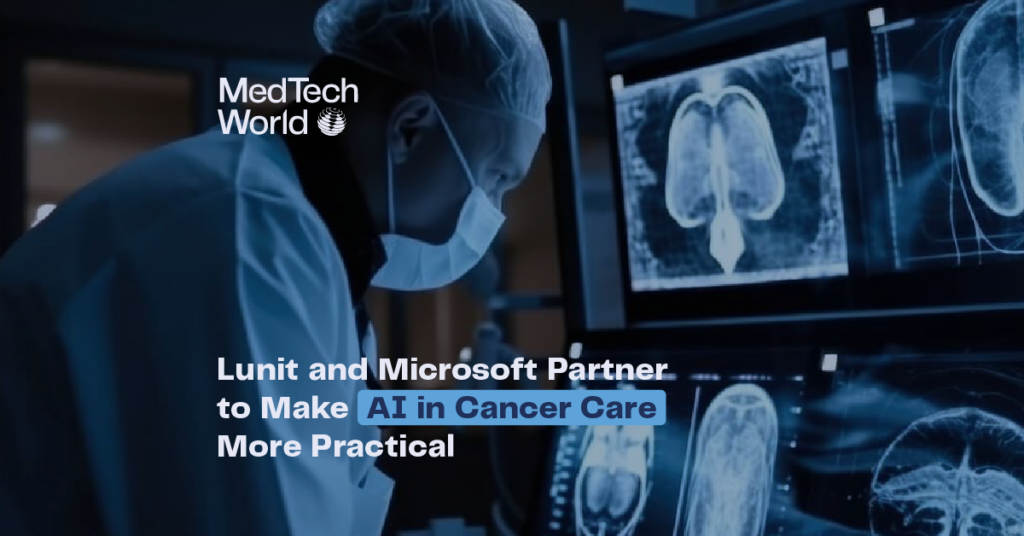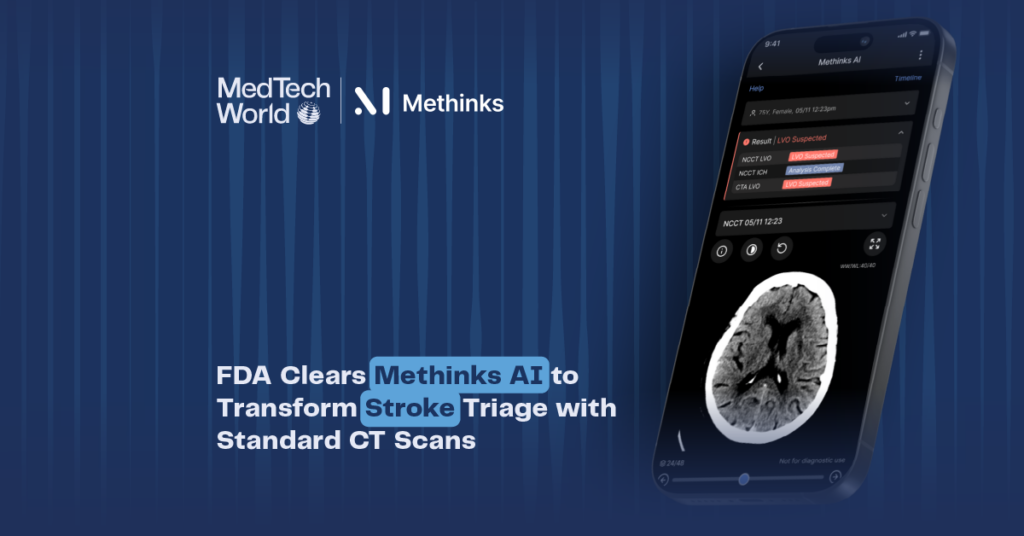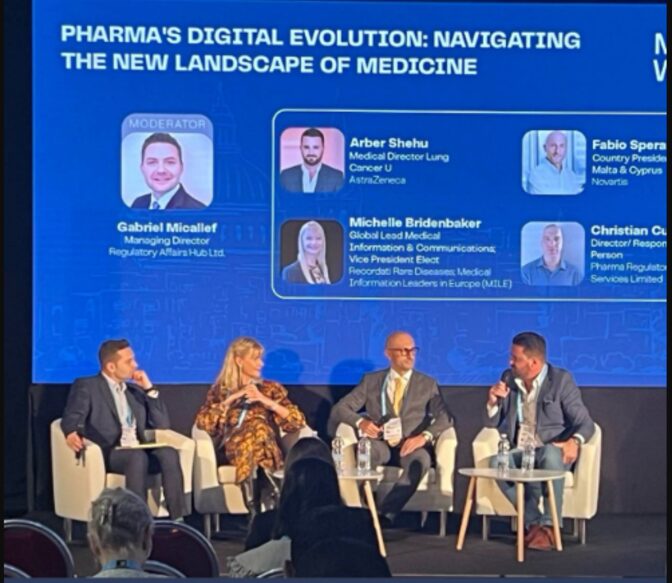

David Gravel
11th November 2024
Pharma’s Digital Evolution: Navigating the New Landscape of Medicine
At today’s MedTech World Malta event, hosted at the Mediterranean Conference Centre in Valletta, healthcare leaders gathered to discuss the transformative role of artificial intelligence (AI) and technology within the healthcare and pharmaceutical sectors. Gabriel Micallef, Managing Director at Regulatory Affairs Hub Ltd, hosted the panel, titled “Pharma’s Digital Evolution: Navigating the New Landscape of Medicine.”
The discussion featured insights from Michelle Bridenbaker, Global Lead of Medical Information and Communications at Recordati Rare Diseases; Dr Arber Shehu, Medical Director for Lung Cancer at AstraZeneca; and Fabio Sperandei, Country President for Cyprus and Malta at Novartis. Together, they shared how AI is reshaping their industries, improving efficiency, and creating opportunities for more personalised and human-centred care.
Leading Voices in Healthcare Innovation
Gabriel Micallef, a regulatory expert with extensive experience guiding healthcare companies through compliance and regulatory affairs, introduced the panellists, each bringing unique expertise in healthcare and pharmaceutical innovation.
Michelle Bridenbaker leads the global medical information team at Recordati Rare Diseases. Focusing deep on patient-centric communication, she advocates for digital transformation in healthcare to improve patient experiences and streamline communication processes.
Dr Arber Shehu, Medical Director for Lung Cancer at AstraZeneca, dedicates himself to advancing cancer treatments, particularly within oncology. His work focuses on using AI to enhance treatment approaches and drive new therapeutic discoveries.
Fabio Sperandei, Country President for Cyprus and Malta at Novartis, brings a perspective on how AI can support strategic decision-making within global healthcare. Novartis’s focus on innovative medicine and advanced data solutions positions him at the forefront of AI integration across markets.
AI in Healthcare and Pharma: Expanding Horizons
Opening the discussion, Bridenbaker spoke to the expanding presence of AI in healthcare and pharmaceutical sectors, describing the pace at which both industries are embracing these technologies. She noted that healthcare and pharma are both venturing into AI & technology, and adoption is gaining momentum, highlighting the impact of AI in transforming healthcare processes. According to Bridenbaker, AI offers many applications across the product lifecycle, from development and clinical trials to supply chain management and patient information services. “There are many use cases for AI throughout the product lifecycle, from development through to supply chain and medical information,” she explained, highlighting the breadth of AI’s role in driving both operational and strategic advancements.

Fabio Sperandei added to this by repeating a phrase from an earlier panel, calling data “the new oil,” emphasising its pivotal role in powering AI systems that can create more targeted treatments, predict trends, and enhance patient outcomes. This perspective underscored the panel’s focus on data as a resource driving healthcare forward and creating new opportunities for innovation.
Freeing Up Human Potential with AI
Bridenbaker further stressed the value of using AI to handle administrative and low-value tasks that consume valuable time and resources. “In pharma and healthcare, it is critical we adopt AI for low value/administrative tasks so that we can put humanity back into what we do and be more present,” she said, advocating for the strategic use of AI to prioritise human interaction. By offloading routine work to AI, healthcare professionals can focus on core roles such as patient care, innovation, and relationship-building. Bridenbaker’s perspective painted a future where AI supports rather than replaces practitioners, enabling them to deliver more compassionate care.
The Role of Collaboration and Partnerships
Dr Shehu emphasised that collaboration across sectors is crucial to making AI integration successful. He stressed prioritising partnerships and collaboration that are cross-functional within industries and institutions. Only strong cross-functional partnerships can fully realise AI’s potential. In Shehu’s view, collaborative efforts between technology developers, medical professionals, and research institutions will be essential to creating AI solutions that meet real-world healthcare needs.
A Vision for a Human-Centred Future with AI
The panel concluded by envisioning a more integrated healthcare landscape, where AI enables practitioners to focus on the most human aspects of their roles. Each speaker reinforced that AI’s purpose is not merely operational efficiency but also to enhance the quality of care, reduce the burden of administrative tasks, and foster deeper patient connections.

With industry leaders like Bridenbaker, Shehu, and Sperandei championing AI’s role in healthcare, the future looks promising. AI will continue to transform healthcare and pharma by freeing up human potential, promoting collaboration, and driving innovation that puts patients at the centre. The message from this panel was clear: AI offers a path to redefining healthcare by bringing humanity back into the profession, enabling a collaborative and compassionate approach to medicine.
Grab the Spotlight: Pre-Register for MedTech Malta 2025!
Got a game-changing MedTech innovation? Want to grab the attention of investors and showcase your tech at one of the top MedTech conferences? Don’t wait—register for MedTech Malta 2025 now and get ready to connect with industry leaders from across the globe!
